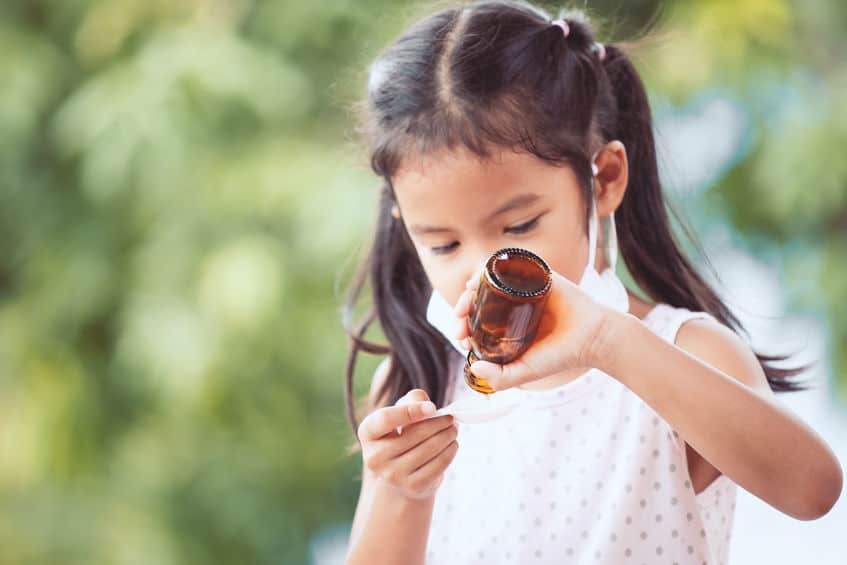Your Questions About Antibiotics, Answered

Do you need antibiotics to treat a cold or flu? Should you bring antibiotics along on a family holiday? Can my children share antibiotics?
If you answered “yes” to the above questions, please read on.
Antibiotics are powerful medicines that can prevent or treat bacterial infections. But they are often misused. As a result, bacteria have grown “smarter” over time, and learnt how to resist existing antibiotics. Infections caused by antibiotic-resistant bacteria are harder to treat, and this has led to higher medical costs and prolonged hospital stays.
Without urgent action, we are heading for a post-antibiotic era, in which common infections and minor injuries will become deadly once more. All of us can do our bit to ensure that antibiotics remain effective for everyone. Start using antibiotics right today—find out how.
“Our family is going on holiday soon and my child has flu symptoms. Should we visit the doctor for antibiotics, just in case?”
It’s a good idea to take your child to the doctor’s before your trip, but do let the doctor decide if your child needs antibiotics.
Antibiotics are prescribed for bacterial infections. They do not work on viruses.
Both the common cold and the flu are infections caused by viruses, and they will usually resolve within three to 10 days. If your child is down with the cold or the flu, he or she may feel sickly, but since it is not a bacterial infection, antibiotics will not help to reduce discomfort, or speed up recovery, at all.
Instead, your doctor may prescribe medications such as cough mixture to ease your child’s symptoms.
“Is there any harm in giving my child antibiotics for a cold or flu?”
Yes. Antibiotics are ineffective against viral infections such as the cold or flu. Consuming them unnecessarily will increase your child’s exposure to the risk of antibiotic side effects. These side effects include rashes, dizziness, nausea, diarrhoea, and yeast infections.
There is also a risk to the community at large, because misusing or overusing antibiotics can lead to “antibiotic resistance.” This happens when a strain of bacteria changes into a form that can no longer be killed by antibiotics. If more bacteria become resistant to antibiotics, minor diseases that are easily treatable today may one day become incurable.
“I have leftover antibiotics. Can I keep them for the next time someone in the family is ill?”
No, if someone in your family is ill, do take him or her to see a doctor for a thorough diagnosis. The doctor will assess your family member’s condition and recommend the best course of action.
Remember: there isn’t a one-size-fits-all approach to antibiotic treatment. Taking antibiotics unnecessarily not only accelerates the development of antibiotic resistance, but also exposes the person to potential side effects of antibiotics.
Do consult your doctor for the most appropriate treatment at all times.
“My children are sick at the same time. If my doctor prescribes antibiotics for one child, can she share them with her siblings?”
Although your children are ill at the same time, do let your doctor assess each child separately. Your doctor will recommend the best course of action for each child. Sharing antibiotics could put your children’s health at risk.
“Should Singaporeans be worried about antibiotic resistance?”
Antibiotic resistance is a growing risk in every part of the world. In fact, the World Health Organization has said it is one of the biggest threats to global health today.
When antibiotic-resistant bacteria emerge and spread globally, our ability to treat common infectious diseases is compromised. Some infections—such as pneumonia, tuberculosis, blood poisoning, gonorrhoea, and foodborne diseases—are becoming harder, and sometimes impossible, to treat as antibiotics become less effective.
What’s more, medical procedures such as organ transplants, chemotherapy, and routine surgeries (such as a caesarean section) will become much more dangerous without effective antibiotics for the prevention and treatment of infections.
In short, everyone is affected by antibiotic resistance. Without action, we will be heading towards a post-antibiotic era, in which common infections and minor injuries can once again kill.
“What can my family do to prevent antibiotic resistance?”
Here are some actions that you and your family members can take:
- Use antibiotics only when prescribed by a healthcare professional.
- Avoid asking for antibiotics if your healthcare professional says you do not need them.
- Never share or use leftover antibiotics.
- Prevent infections by practising good hygiene, such as frequent hand washing, and getting flu vaccinations.
Together, we can ensure that future generations can continue to use antibiotics to treat bacterial infections effectively.
Learn more about using antibiotics right at HealthHub.sg.
